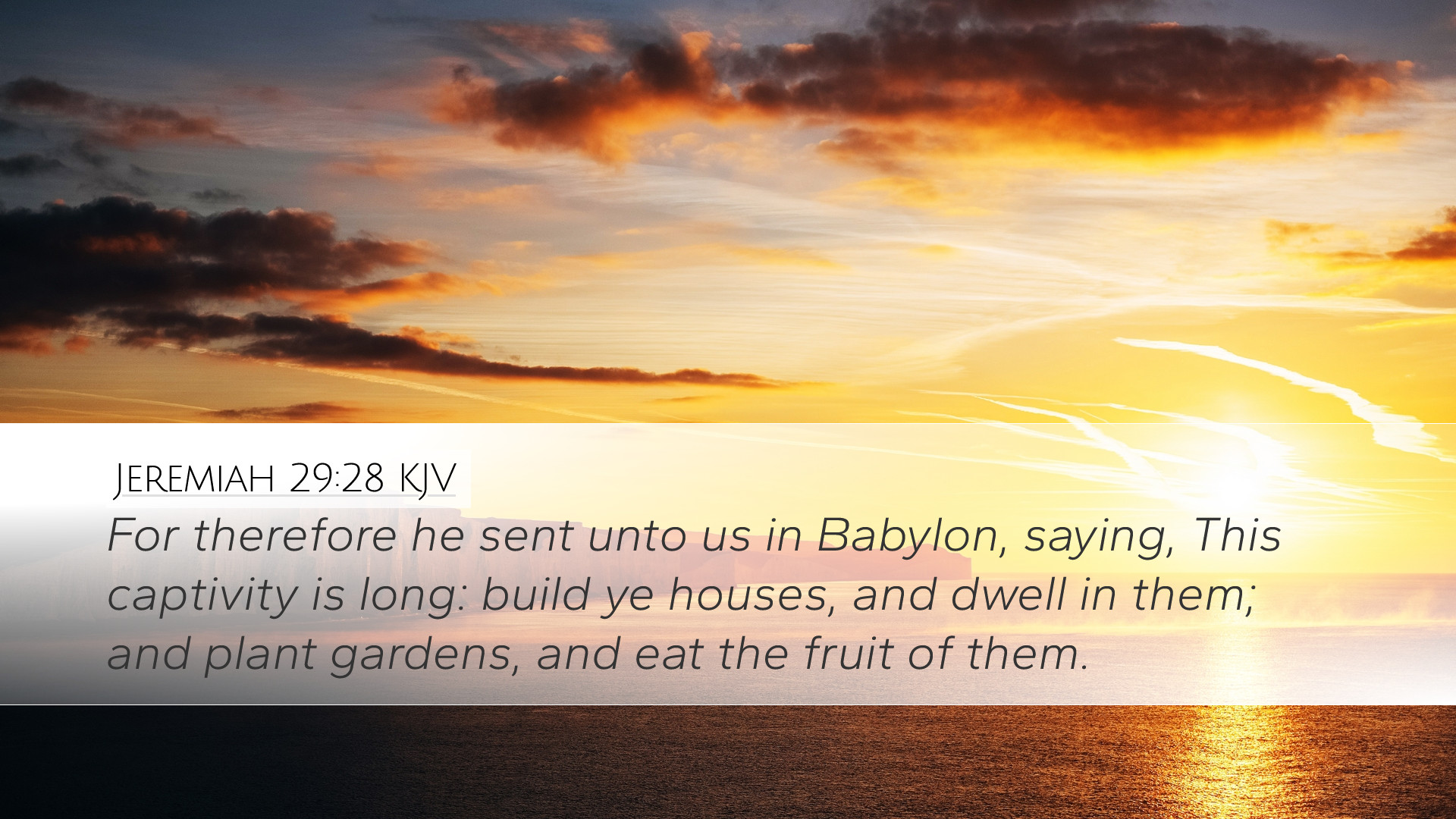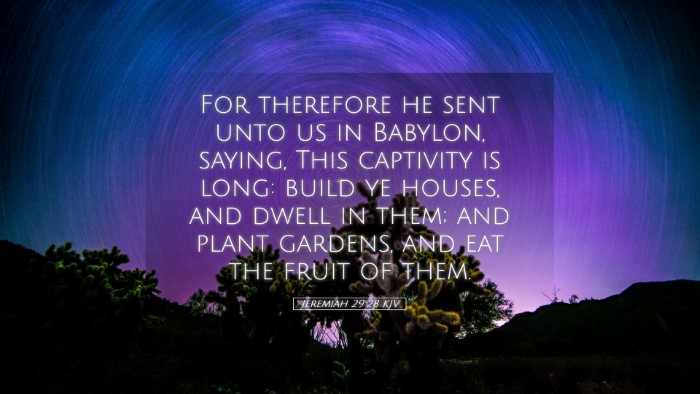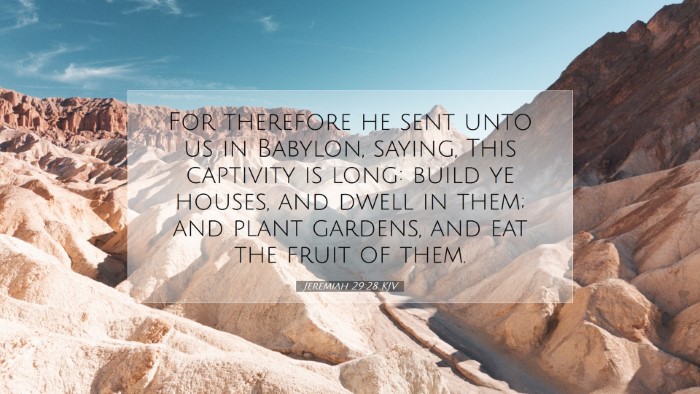Commentary on Jeremiah 29:28
Verse Text: "For, therefore, he sent unto us in Babylon, saying, Your captivity is long: build ye houses, and dwell in them; and plant gardens, and eat the fruit of them."
Introduction
The prophet Jeremiah's letter to the exiles in Babylon serves as a significant theological milestone in addressing the state's prominent role in the lives of believers. This verse captures the essence of living in a foreign land with specific instructions that stress both temporal and spiritual well-being. The interpretations of esteemed commentators such as Matthew Henry, Albert Barnes, and Adam Clarke provide profound insights into the depth and implications of this endeavor.
Contextual Background
Matthew Henry emphasizes the context of Jeremiah's prophecy during a time when the Israelites were exiled due to their unfaithfulness. This particular message was sent to those who were in a state of despair and uncertainty, encouraging them to settle in Babylon rather than attempting to return to Jerusalem prematurely.
Albert Barnes further elaborates on the historical context by noting that the Babylonian exile challenged the very identity of the Israelites. The prospect of rebuilding their lives in a foreign city was not only a practical necessity but also a test of faith and perspective.
Theological Implications
1. Divine Sovereignty and Providence
Adam Clarke highlights God's sovereignty even in exile. The instructions given through Jeremiah not only show God’s continued presence among His people but also His guiding hand in their suffering. The exile was part of God's plan, and thus, the encouragement to "build houses" signifies His promise of restoration and hope.
2. The Call to Cultural Engagement
Matthew Henry points out that the instructions to engage in everyday life—building houses, planting gardens—indicate a call to cultural engagement. The exiles were not to adopt a passive stance but were to thrive in their environment. This thematic element speaks volumes to contemporary believers about their role in societal contexts where they might feel like outsiders.
Practical Exhortations
The exhortation to engage in regular life activities affirms the dignity of daily work and its significance in the life of faith. Here, we find several practical applications:
- Embracing Life in Displacement: The instruction to "build ye houses, and dwell in them" encourages believers to find stability and purpose even in circumstances of discomfort.
- Cultivating Spiritual Resilience: By planting gardens and reaping their fruits, the exiles are reminded that sustaining life also requires spiritual nourishment and growth.
- Community Building: Engaging in societal routines fosters a sense of belonging and community among believers, which is crucial in times of trial.
Conclusion
Jeremiah 29:28 serves as a reminder that believers have an active role in shaping their circumstances, even while facing adversity. The insights provided by Matthew Henry, Albert Barnes, and Adam Clarke emphasize God's providence and the importance of engaging thoroughly with one's environment. Through the lens of this scripture, pastors, students, and theologians are encouraged to find hope and purpose amidst the challenges of life. The call is neither to withdraw nor to escape but to deeply invest in the lives of others, creating sanctuaries of faith even in the midst of exile.


